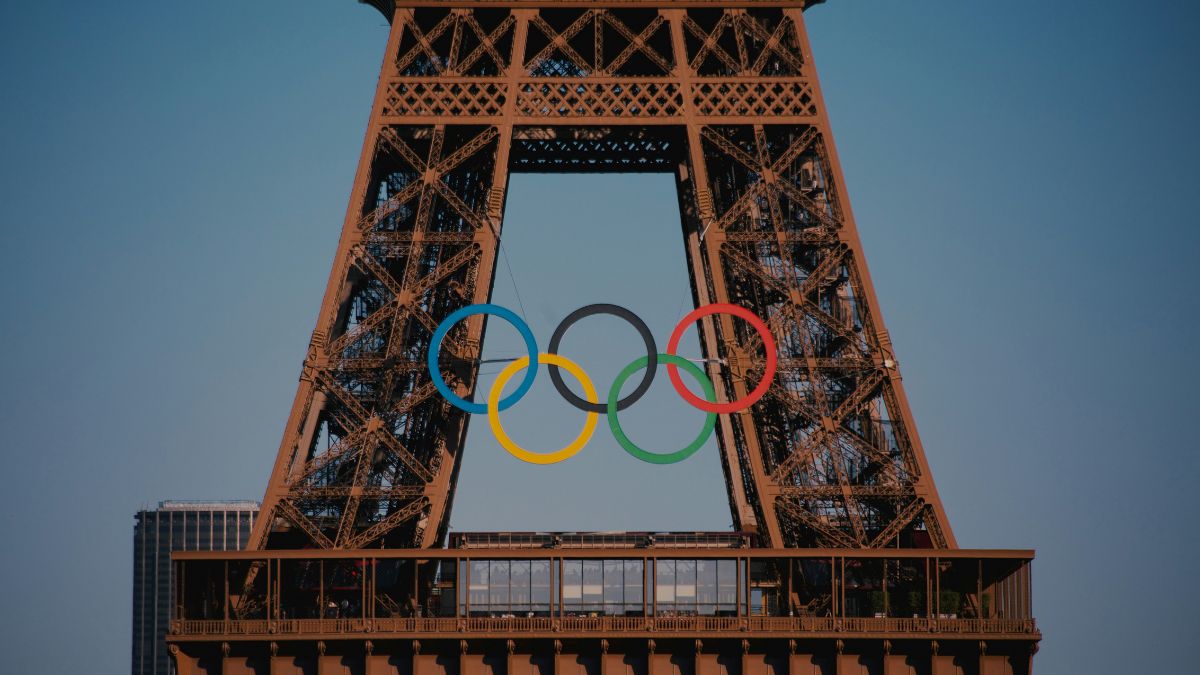

The Olympics as Utopian Theater
It’s all a show in the city of man.
08/20/24
John Stonestreet Timothy D Padgett

Even after the controversy of a bizarre opening ceremony, the Olympic Games showed why it is unparalleled in the sports world. Just think of the memes generated from this year’s games. In just a few weeks, we got the “super-chill” Turkish marksman, a Clark Kent of American men’s gymnastics, and the Australian break dancer.
Far more than the memes, of course, were stunning athletic performances. Sydney McLaughlin-Levrone broke her own world records, but never failed to give glory to God. Katie Ledecky became the most decorated U.S. female Olympian. As one writer described the swimmer, “She is beautifully human. Vulnerable. Not a machine, despite the power with which she moves through the water.” Simone Biles completed a personal redemption tour while also leading the women’s gymnastics team to gold. Also returning to gold was the young U.S. women’s soccer team, now in a new season after the retirement of the grandstanding Megan Rapinoe. And, of course, NBA rivals Lebron James and Steph Curry led Team USA in a come-from-behind win over Serbia before defeating France for the gold. Curry hit four straight three pointers in the last two and a half minutes to secure the win and his place as the greatest shooter anyone has ever seen.
This year’s debacle notwithstanding, the opening ceremonies are, typically, a highlight. The drama, spectacle, and pageantry are, in a sense, a glimmer of Eden, an attempt to portray what humanity can be. Vigor, commitment, health, and determination are on full display as the nations of the world offer their treasures. There may be wars and rumors of wars around the globe but, for a moment, the world pretends that all is right. At least, that’s how Snoop Dogg described his experience.
But that’s just it. It’s all pretend. Every four years, at the cost of billions of dollars, the world pretends that China isn’t a tyrannical power, that Iran doesn’t murder dissidents, and that Western nations don’t slaughter the unborn by the millions in the name of freedom. It is, in the end, a utopian façade.
Little demonstrates this moral frailty more than the villages and stadiums that are built, filled, and then left to rot after the Olympic flame is extinguished. Venues from the 1984 Winter Olympics in Sarajevo now stand in ruins from war and weather. Facilities from the Summer Games in Rio held just eight years ago now resemble the set of a post-apocalyptic movie. After the pride of hosting fades, often communities are left financially broken.
In this way, the Olympics are an example of what Augustine called the city of man. A city of man is self-serving and, ultimately, doomed to fall away. In our world, progressives claim to promote justice but make common cause with genocide in the name of intersectionality. Many conservatives are quick to take on a religious mantle when helpful but just as quick to drop it when no longer useful. Detached from the reality of the City of God, which aims to serve God and is therefore eternal, our imitations of righteousness are doomed to fail and to fall, often spectacularly. It’s all a show, one that doesn’t take the human condition seriously.
Similar parallels are offered in Scripture between other cities. Jerusalem stands, in reality and as a metaphor, as the place of God’s Shalom, presence, and redemption. Babylon, from Genesis to Revelation, is an archetype of human pride, oppression, and sin. At Babel, humans sought a name for themselves. At Jerusalem, God’s name is central.
No matter how hard Babylon tries to be Jerusalem, a city of man will always be a frail echo of the city of God. Seen correctly, the creativity, production, and athletic prowess of the Olympic Games points to God, Who created these athletes, planners, artists, and producers in His image. The key, however, is to keep straight who is the Creator and who is created, who is Potter and who is clay. That’s what humans tend to get backwards.
This Breakpoint was co-authored by Dr. Timothy Padgett. If you’re a fan of Breakpoint, leave a review on your favorite podcast app. For more resources to live like a Christian in this cultural moment, go to breakpoint.org.
Have a Follow-up Question?
Up
Next

Related Content

© Copyright 2020, All Rights Reserved.













